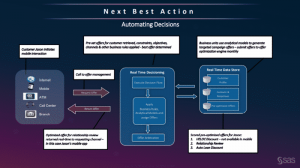Everything will be different once COVID-19 has passed. Is your company ready for the exponential growth and surge of business that will inevitably follow?
If an extraterrestrial being was looking through a telescope at the world we’re currently living in, I’m sure they would be asking themselves many questions.
Although it’s difficult to answer most of these questions proposed during these unprecedented times, one thing is for sure: This too shall pass.
Let’s face it: Life is stressful. It always has been, and it always will be, but that doesn’t mean that you have to feel stressed due to it. Stress has been given a negative connotation over the last few decades. But most experts would agree that stress is a necessary ingredient for change, growth, and prosperity. Thus, it is essential to realize how our perceptions change the way we view stressors in our environment.
An isolated traumatic event can carry multiple connotations with it. But it can also create much-needed breakthroughs and positive changes in a person’s life that can alter the trajectory of their path moving forward.
This positive exponential growth following a traumatic event is known as “post-traumatic growth.” It has been around for centuries and written about in ancient spiritual and religious domains, philosophy, and even written literature.
So how do we create an environment to optimize this process of post-traumatic growth?
The answers are far more straightforward than you may think. Lets dig in.
Lead With Empathy
Being able to understand the wants and needs of others is the foundational building block to showing empathy. For the 21st century leaders, leading with empathy is a requirement because it will allow them the inherent ability to bring people together from different political, cultural, and ethnic backgrounds. The beautiful part of empathy is the more you use it, the easier it is to embrace.
From a healing standpoint, the moment a person feels understood is when they’re able to begin their healing journey. This concept remains steadfast in both the clinic and the boardroom because both will always involve people. When a leader can lead with empathy, they inherently facilitate the activation of specific regions of the brain associated with social communication, connection, and well-being, creating an environment full of potential and enhanced productivity.
When these brain regions become active, they facilitate positive emotions, which lead to greater engagement, motivation, and endurance with cognitively-demanding tasks.
Empathy also decreases our inherent stress responses, which can have devastating effects on employee morale and the company’s physical/mental/emotional health. Stress in the workplace estimates a loss of upwards of $ 200 to $ 300 billion a year in workplace productivity due to stress-related illnesses negatively affecting workers’ overall health and well-being.
Eliminating these negative factors and focusing on people’s needs can become a superpower for leaders who choose to usher their team into the new and unforeseen territory in their business.
Give Your People Autonomy, Not Governance
The 21st-century workplace will be flexible and autonomous, not because it could be, but because it should be. While this sounds intimidating in theory, the practical applications are endless because it allows the flexibility and mental capacity for people to execute their jobs at the highest level possible. Humans are born to be autonomous and self-directed.
When employees experience autonomy, they no longer feel bogged down by the daily triggers and negative emotions of having someone looking over them, facilitating less stress and higher cognitive processing. This simple change in management can create an exponentially greater return rate because it allows people to increase the creative use of their right-brained processes for enhanced innovation, creative thinking, and problem-solving.
Providing your employees with autonomy can yield significant dividends down the road due to increased employee output and productivity, compounded with the effects of decreased employee turnover, fewer sick days, and greater personal accountability.
Easier Said Than Done
While all of this information makes sense, we understand that implementing the tools and tactics described is often more complicated than it seems, but it doesn’t have to be.
Being a leader means taking calculated risks and receiving the necessary feedback about your decisions. Trial and error are essential to the LEAN learning process for start-ups and corporations competing for survival, which is why it is imperative to lead your team into the darkness with the brightest light possible.
Growth doesn’t happen overnight, but it does happen over time. Much like compound interest, actions, and change can create momentum to carry a corporation into new prosperity and success levels.
The actions and steps taken today will inevitably create a domino effect for years to come. Where do you foresee your business in the future?
Start acting now to make it a reality.
Business & Finance Articles on Business 2 Community
(18)
Report Post



